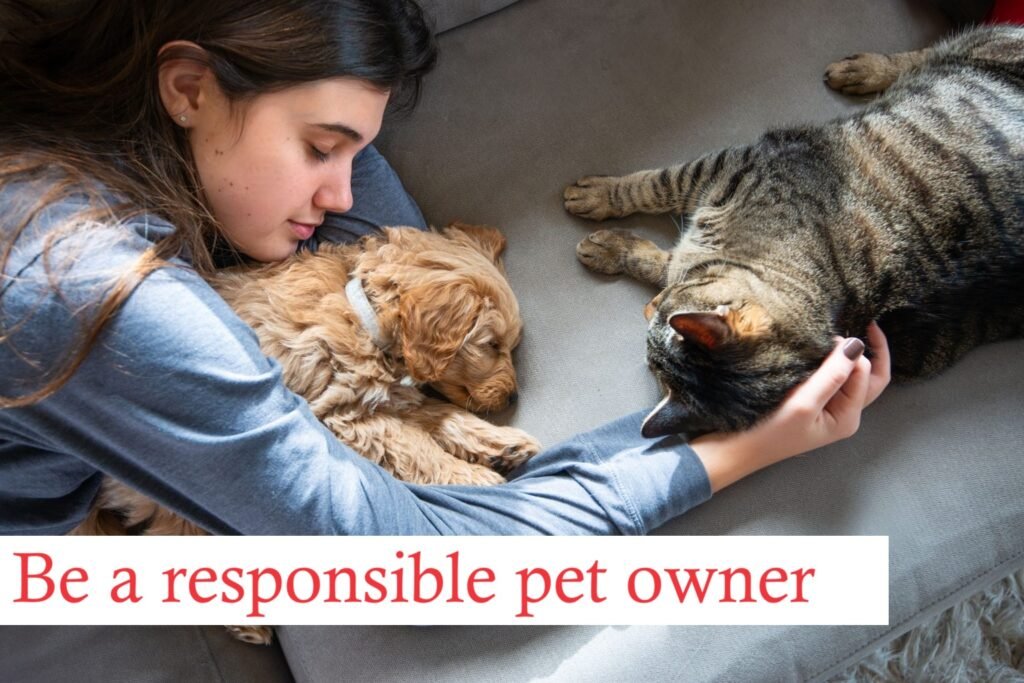Welcome to the world of Poodles! These dogs are known for their intelligence, elegance, and versatility. Poodles are beloved worldwide for their curly coats and lively personalities. Learning about this breed is essential whether you want a loyal family pet or a show dog.
This guide will help you understand Poodles’ appearance and behaviour and how to keep them healthy and happy. It will also show you what to expect if you consider getting a poodle.
The Poodle: A History of Elegance and Versatility
- Origins and Early Development
Poodles, also called “Caniche” in French and “Pudel” in German, originally came from Germany but became popular in France. The name “Poodle” comes from the German word “pudel,” meaning “to splash,” as they were initially bred as water retrievers. They helped hunters retrieve the game from the water and were popular circus performers.
Poodles became adored by the French nobility for their intelligence and trainability. Their fancy grooming styles and ability to perform tricks made them companions to royalty. The American Kennel Club (AKC) recognized the Poodle as an official breed in 1887. Today, they are celebrated as one of the most intelligent and most versatile dog breeds.
- Show Competitions and Recognition
These dogs became well-known in dog shows for their stylish looks and intelligent behaviours. From 1960 to 1982, they were the most registered breed with the AKC. Their hypoallergenic coats and friendly nature have also influenced other breeds, such as the Labradoodle and Goldendoodle.
Physical Characteristics of the Poodle Breed
| Size | Height | Weight | Characteristics |
| Standard Poodle | Over 15 inches | 40 to 70 pounds | The largest size, strong and active, great for activities like hunting and agility. |
| Miniature Poodle | 10 to 15 inches | 10 to 15 pounds | Smaller than Standard, suitable for smaller spaces, still needs regular exercise. |
| Toy Poodle | Up to 10 inches | 4 to 6 pounds | The smallest size, ideal for apartment living, and needs lots of attention and playtime. |
- Coat: They have a thick, curly coat that’s low-shedding and hypoallergenic. It requires regular grooming, and coat styles vary from curly to corded.
- Colours: Poodles come in various colours, including black, white, brown, apricot, and silver. They can also have unique patterns like parti-colour or phantom.
- Eyes: Their dark, oval eyes are expressive and reflect their intelligence and alertness.
- Build: They have a square, balanced build with a deep chest and strong legs, which gives them elegance and agility.
Temperament and Personality of the Dog
Poodles are known for being intelligent, easy to train, and friendly. They suit families and people who want a smart, active, loving dog.
- Intelligence: They are brilliant, ranking second in dog intelligence. They excel in training, agility, and learning new commands. Mental stimulation, like puzzle toys and training games, is crucial to keeping them happy and preventing boredom.
- Energy Level: Poodles are energetic and need daily exercise, such as walks, runs, or playtime. Activities like fetch or swimming help burn off their energy and keep them fit. They may develop unwanted behaviours like excessive barking or chewing without enough exercise.
- Behaviour: Loving and loyal, they are great with families and other pets. They can be shy around strangers, so early socialization is essential. Their alert nature makes them good watchdogs, but they are not aggressive.
Living Conditions and Space Requirements for a Dog’s Life
Poodles can adapt to various living environments if their exercise and social needs are met.
- Ideal Environment: Poodles are happiest in homes with plenty of exercise and mental stimulation. They like having a yard to run and play in, but they can also live in apartments if their needs are met. Daily walks and playtime are very important to keep them healthy.
- Space Requirements: Poodles need space to move and play. A yard with a secure fence is best, especially for Standard Poodles, who need more room to run. Miniature and Toy Poodles can adapt to smaller spaces but still need daily walks and activities to stay fit.
- Apartment Adaptability: These dogs can live in apartments with enough exercise and mental stimulation. Toy and miniature poodles are particularly suited for apartment living, but they still need regular walks and playtime to keep them from getting bored.
Training and Exercise Needs for a Healthy Lifestyle
Training and exercise are essential to keep Poodles happy and healthy.
Training
Poodles are highly trainable and respond well to positive reinforcement, such as treats, praise, and play. They are quick learners and enjoy participating in obedience and agility training. Early socialization and consistent training help them develop good manners and prevent behavioural problems.
Exercise
Poodles need at least one to two hours of exercise every day. Activities like running, walking, and playing fetch keep them active and happy. Standard Poodles need more exercise, while Miniature and Toy Poodles are so happy with shorter, more frequent playtimes.
Health and Lifespan of the Breed
Poodles are generally healthy dogs, but like all breeds, they are prone to certain health issues. Knowing about these problems and how to prevent them can help your Poodle live a long, healthy life.
Common Health Issues
- Hip Dysplasia: This affects the hip joints, especially in Standard Poodles. Regular vet check-ups, a good diet, and a healthy weight can help manage this condition.
- Progressive Retinal Atrophy (PRA): This eye problem can cause blindness. Regular eye exams are recommended for early detection.
- Addison’s Disease: This condition affects the adrenal glands, making your dog tired and sick. It needs treatment and regular vet care.
- Epilepsy: They can have seizures. With proper care and medication, they can still live happy lives.
Lifespan and Care
Poodles usually live between 12 and 15 years. More miniature Poodles often live longer than larger ones. A good diet, regular exercise, and regular vet visits will help them stay healthy.
Care Tips: How to Properly Care for Pet Poodles
- Diet: Feed your pet
- Poodles have a balanced diet that meets their nutritional needs. Don’t overfeed them to prevent weight problems.
- Grooming: Brush their coats daily to prevent tangles, and take them to a professional groomer every 4-6 weeks.
- Health Checks: Take your pet Poodle to the vet for regular check-ups. Early screenings for hip dysplasia and PRA are a good idea.
Compatibility with Families and Other Pets
Poodles are excellent family dogs because they are friendly and adaptable.
Interaction with Children and Other Pets
- Children: Poodles are playful and gentle with kids. They enjoy being part of the family and are usually good with children. However, small children should be supervised with Toy Poodles, as they are delicate.
- Other Pets: If socialized early, they can get along well with other pets. They usually fit well into multi-pet homes, but early training ensures everyone gets along.
Regular Veterinary Care
Regular vet care is essential for keeping your Poodle healthy and happy.
Health Checks
Routine check-ups can catch health problems early. Make sure your Poodle stays up-to-date on vaccinations and preventive care. Regular screenings for hip dysplasia and PRA are recommended, especially for Standard Poodles.
Adoption vs. Purchase: Making an Ethical Choice
If you’re thinking about adding a Poodle to your family, consider the best way to do it.
Adoption
- Benefits: Adopting a Poodle from a shelter or rescue organization gives a dog in need a loving home. Adoption helps support animal welfare and can be a rewarding experience.
- Considerations: Shelters have Poodles of all ages, so you can find one that fits your lifestyle.
Choosing a Reputable Breeder
- Responsibility: A good breeder cares about the health and well-being of their dogs. They do health testing and follow ethical breeding practices. Make sure to visit the breeder, ask about health clearances, and see how the puppies are raised.
- Research: Look for breeders who are transparent about their practices. They should be willing to show you health certificates and answer your questions.
Avoiding Unethical Sources
- Puppy Mills: Never buy from puppy mills, where dogs are kept in poor conditions and bred irresponsibly.
- Backyard Breeders: Be cautious of backyard breeders. They may not follow good breeding practices, increasing the risk of health problems in their puppies.
Conclusion
Poodles are exceptional dogs known for their intelligence, elegance, and versatility. Whether you choose a Standard, Miniature, or Toy Poodle, each size offers unique traits that make them wonderful companions for various lifestyles. Their friendly nature, combined with a hypoallergenic coat, makes them popular for families, singles, and even those with allergies.
However, owning a Poodle comes with responsibilities, including regular grooming, exercise, and health care. By understanding their needs and providing them with a loving, stimulating environment, you can ensure your Poodle’s happy, healthy life and enjoy a robust and rewarding bond with this remarkable breed.



